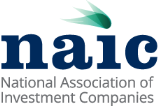
Outsized Performance is Met With Outsized Demand
Posted on 04/07/2015
This article is sponsored by National Association of Investment Companies.
Written by Alan Hughes of the National Association of Investment Companies (NAIC)
Achieving oversubscribed status is often a positive accomplishment for private equity firms. It generally shows that investors have confidence in the firm’s management team and that its investment strategy will lead to healthy returns for its limited partners. For diverse managers, sometimes representing much smaller, younger firms, raising capital can be more challenging than those representing big-name institutions.
Recently, 10 diverse firms, among them Siris Capital Group, Palladium Equity Partners, Vista Equity Partners, Sycamore Partners, and One Rock Capital Partners, separately set out to raise capital for funds managed to reach oversubscribed levels. This event – the first time in history so many diverse funds have done so – could signal the beginnings of some much-needed changes in the way institutions invest their money while demonstrating the strong returns many of these managers are providing their investors.
According to Robert L. Greene, President and CEO of the Washington DC-based National Association of Investment Companies (NAIC), this occurrence is a validation of performance. “The LP’s themselves are looking at the returns, and they’re biting,” he says. “Each of the funds that were oversubscribed has generally received an average commitment of $75 million to $100 million. That is now on par with accepted representative investments that go into so-called mainstream funds.” The NAIC is the trade association representing diverse-owned private equity firm and hedge funds whose investment strategies often focus on emerging domestic and global mid-market opportunities.
Private equity firms raise money from various institutional investors, or limited partners. These LPs can range from high net worth individuals to university endowments to public pension plans. The money raised is then typically invested in operating companies in exchange for an equity stake. The fund management then develops a strategy to increase the value of that stake. Return on investor’s capital is earned when a liquidity event such as recapitalization, merger, sale or public offering is achieved.
New York City-based Siris Capital focuses on technology, with most of its deals being investments in public companies the firm takes private. The firm began raising for its third fund in September 2014 and closed on it in February 2015. “We put a billion dollars on our cover,” says Frank Baker, co-founder and managing partner. “And we ended up capping it at $1.8 billion.”
Baker cites the performance of his firm’s first two funds as a factor for investor interest in the fund. “I think the reason that we were able to raise such a big fund this time around is that our first two funds have performed quite well,” he says. “The markets now appreciate who we are and how we like to invest.”
According to Derek Jones, Managing Director at Grosvenor Capital Management who leads diverse manager private equity practice and co-investment private equity practice, some of these diverse managers are not only meeting, they are exceeding their targets putting their funds in the enviable position where they’re turning away money due to heightened investor interest. “And that puts those managers in the higher upper echelon of private equity where their strategies resonated well,” he attests. “Obviously there’s very strong performance and institutional investors are clamoring to get into the funds.”
When New York City-based Sycamore Partners began the fundraising process for Sycamore Partners II, L.P., it was the strong performance of its predecessor fund that helped the firm close on more than $2.5 billion in less than four months. That first fund, with a strategy of partnering with management teams to purchase leading consumer and retail businesses, generated gross returns in excess of 70 percent and net returns in the high 40s, according to publicly available information. “The easiest thing to say is we like great management teams to lead great brands,” says Stefan Kaluzny, Managing Director.
Those returns made a compelling argument to investors when the firm began fundraising for its second fund, a continuation of the first fund’s strategy. This second fund closed on more than $2.5 billion dollars with 100 percent re-up from existing investors, according to sources close to the firm.
These diverse managers didn’t just appear out of the ether. In recent years, the marketplace just began to recognize the talent (and returns) they bring. One recent trend that is occurring is the spinning out of established management teams from big-name firms into smaller, entrepreneurial ventures. “We’re seeing increasing activity of these spin-outs where people have worked together and they’re spinning out of the platform,” says Jones. “Before it was one person from this shop, another person from another shop. Now we’re seeing whole units raising money around their combined track record. And the fact that they’ve worked together and they were already a team makes it a little easier in terms of the diligence.”
One such firm is One Rock Capital Partners, LLC. Based in New York City, the firm was founded in 2010, with most of the management team having spun out of Ripplewood Holdings, a larger private equity firm also headquartered in New York City. Over the years, the team built cohesiveness and track record of performance that they took to the young firm. That resonated with investors.
Another thing that resonated was an investment One Rock made with third-party investors in Dixie Electric, a provider of electrical infrastructure and automation services for oilfields. “We sold Dixie Electric and it was a very nice outcome for our investors,” recalls Tony W. Lee, co-founder and Managing Partner of One Rock. “At the same time, other investors interested in One Rock could evaluate not only our prior track record and our backgrounds, but they could also see all the operational and strategic improvements we were making to that particular business.” Despite an initial target of $250 million, at the end of its fundraising process the firm had over $600 million of LP demand. One Rock closed its debut fund at $431.5 million in February 2014.
The rise in the numbers and performance of diverse fund managers is attributable to several fairly recent changes within the industry. Jones also claims many of the gatekeepers and consultants had a more myopic view of where the talent was in years past – a trend that is shifting more in favor of casting a broader net. “In the old days, you would have had to have been in business for 10 years, or have a track record of X number of years, or worked at a certain number of places,” he states. While cliché, this is in effect leveling the playing field to a degree. And these fund managers are responding by providing returns.
Another factor benefitting the new generation of managers are increased employment opportunities for diverse professionals at big-name firms where they are gaining valuable experience and contacts. Over time, some of these managers opt to leave these mega firms and hang their own shingle. In decades past, there simply was not a critical mass of well-positioned diverse professionals in the private equity space.
But don’t confuse this demand with investors looking for a diversity and inclusion play. According to David Perez, President and Chief Operating Officer at Palladium Equity Partners, LLC a New York City‐based private equity firm, another factor contributing to the success of these funds is demand by foreign investors and others with no social agenda whatsoever. “The truth here and the fact is that when you’re oversubscribed generally because you have delivered performance, not because you are a genius marketer,” asserts Perez. “We believe it’s the marketplace speaking.” Palladium, which focuses on transitioning founder-owned businesses and investing in companies it believes will benefit from the growth in the U.S. Hispanic population, targeted $800 million in its most recent fundraise and ended up closing on $1.14 billion.
The New York State Common Retirement Fund, NYCRF, is one institution that has recognized the value that these managers offer. NYCRF currently invests $9 billion through Minority Women Business Enterprise (MWBE) firms through direct mandates and its Emerging Manager program. It has also committed more than $5 billion to up-and-coming investment managers through the program; over 50% of these managers are with diverse- or women-owned firms. “The goal of this program is to increase access to the pension fund’s investment opportunities and expand the talent pool of managers,” says a spokesperson for the NYCRF.
So what does this all mean? For starters, that these boutique firms can actively compete against the large firms rather than having a protected, exclusionary system that is not of interest to the broader markets. It also means that with billions of dollars left on the table due to oversubscription there’s a greater demand and desire, creating new opportunities for new firms. “To the degree that you didn’t have an opportunity to get in with Vista, or Sycamore, you then have other respected choices that you can go to,” says the NAIC’s Greene. “I think that some of that success of the very top [diverse] firms has lended itself to a next generation of firms that will now begin to fill in the ranks.”
| Firm | Fund | Target – Millions USD | Closed – Millions USD |
|---|---|---|---|
| Siris Capital | Siris Partners III, L.P. | 1,000 | 1,810 |
| Sycamore Partners | Sycamore Partners II, L.P. | 2,000 | 2,500 |
| One Rock Capital Partners | One Rock Capital Partners, LP | 250 | 431.5 |
| Palladium Equity Partners, LLC | Palladium Equity Partners IV, L.P. | 800 | 1,140 |
| Vista Equity Partners | Vista Equity Partners Fund V | 3500 | 5,775 |

About NAIC
For more information, visit the National Association of Investment Companies at www.naicvc.com, call +1 202-204-3001 or email the author at ahughes@hughescommconsulting.com

